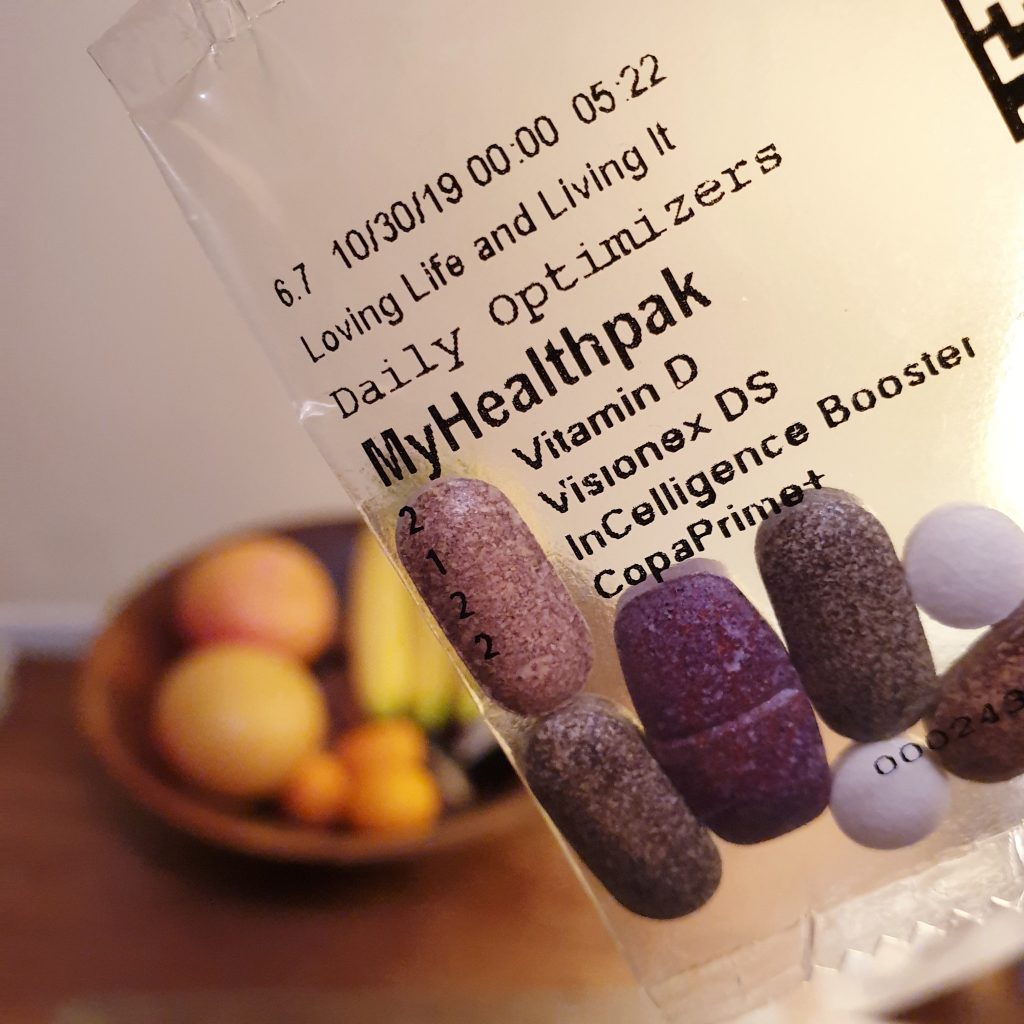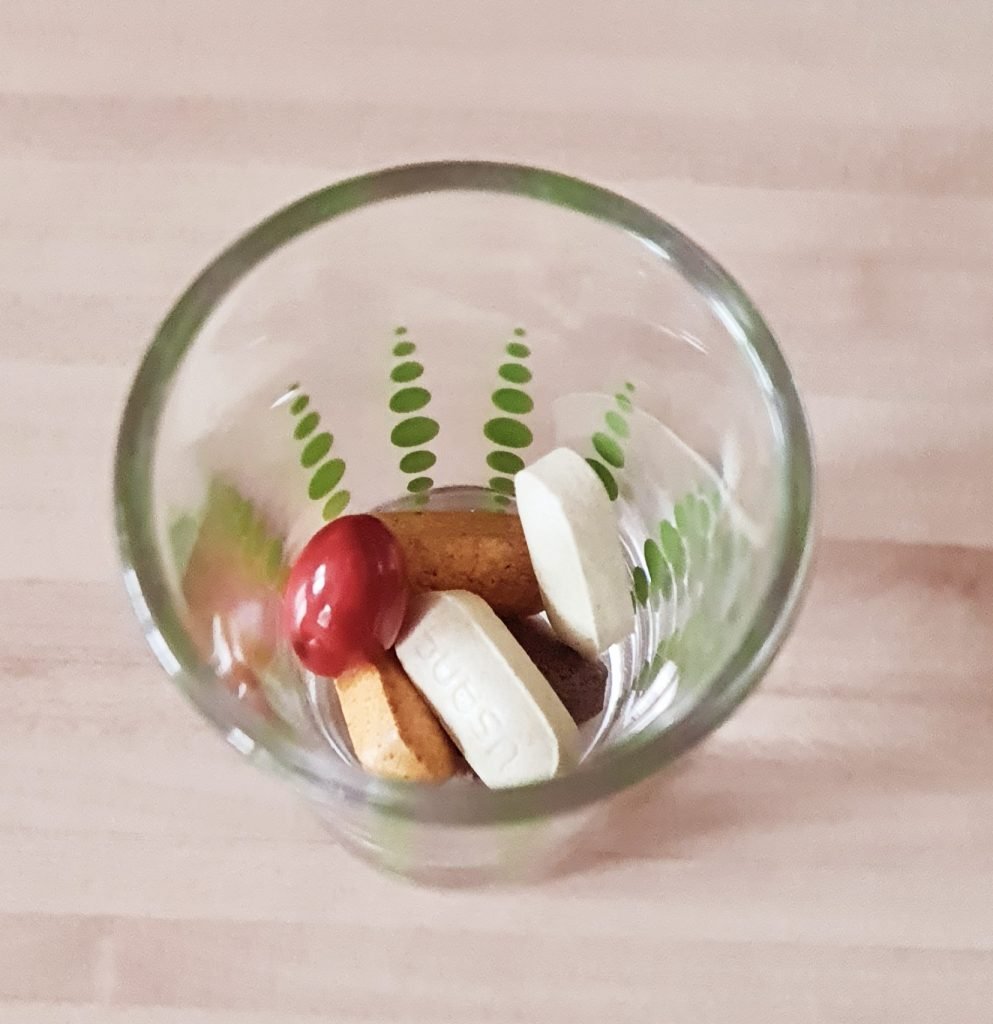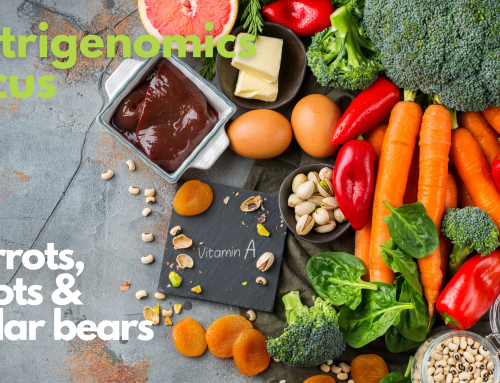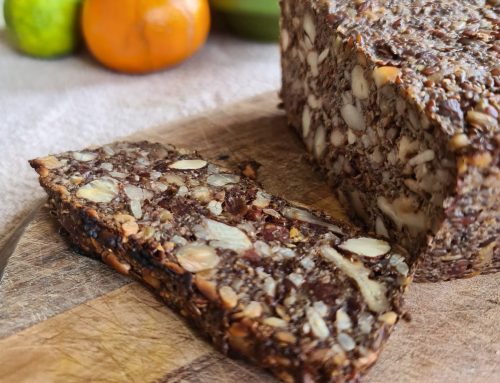Tips and tricks for remembering to take your supplements
A friend told me recently that he’d been taking some very high quality supplements but hadn’t noticed any difference in his health. He asked if he should continue taking them. “How many have you taken already, and when did you start?”, I asked. “About half a pot, and about 6 months ago” was his reply. So he’d taken two weeks’ worth of supplements over six months. That’s like saying you had a full 7 hours’ sleep on 14 days out of 6 months, but you can’t understand why you’re not feeling great. Nutritional supplements are an important part of optimising your food, and there are many reasons why it can be argued that they’re sadly no longer a luxury, but a necessity. Eating junk food is like getting two hours’ sleep a night. Eating a healthy, balanced, unprocessed diet seven days a week is like getting 5 hours sleep a night, but it’s still not enough, and it’s only when we supplement micronutrients to bring levels up to what our bodies have evolved to use that we get the full “7 hours”. And in fact, some people will need 8 or even 9 hours, because of their life stage or health conditions.
So, you’ve come to the point where you are ready to take control of your health. You’ve made the decision that you’re going to eat more healthily, exercise regularly and follow a programme of healthier lifestyle habits. For the first few days, you’re on fire, doing everything you’ve committed to and feeling better. But somehow, after a while, normal life and ingrained habits seem to creep back, and because your new habits aren’t quite embedded, you feel you’re slipping into your old ways.
Those early days of forming a new habit can be a challenge, and no matter how good our memory, we can’t always rely on it to prompt us at the right time when those neural connections aren’t yet solidified. When you sit down in the car and drive off to the farm shop for your healthy vegetables, your car is smart enough to tell you with an annoying “ping” if your seatbelt isn’t plugged in. We don’t need those “Clunk click every trip” adverts of the ’80s on TV anymore. But when it comes to nutrition, not even Alexa or a smart house is intelligent enough (yet) to remind us to make the right food choices or take our supplements. So we have to resort to good, old-fashioned psychology.
Habits form from associations with contextual cues. In the case of the car seatbelt, most of the time the act of buckling up is automatic, even before the “ding ding” reminder kicks in. This is because the cue of sitting in the car seat, or putting the keys in the ignition, triggers the action. There’s no need for us to remind ourselves each time that putting the seatbelt on may just save our lives, but a close call, or worse, involving the lack of a seatbelt is a powerful incentive that also removes the need for the audible reminder. Our daughter occasionally reminds our son that she probably saved his life by nagging at him one day to put his seatbelt on… just before the car they were being driven to school in overturned onto its roof in a field. The two kids suddenly found themselves hanging from their seats, saved from landing on their heads by their seatbelts. Our son never again needed reminding to belt up!
So, when it comes to taking supplements there are two important factors which help to get the pill habit ingrained: environmental cues, and incentives.
Environment: setting yourself up to win
“Out of sight, out of mind” generally holds true when it comes to habit forming. If your supplements aren’t in view when you’re about to eat, it’s unlikely that you’ll remember them until your brain associates the act of eating with getting your supplements down you. If you have several pots and you don’t want to have them all cluttering the table, try writing yourself a sticky note or setting a daily alarm on your phone. Then every morning, put out your supplements for the day in two shot glasses – for AM and PM – and put these on the table.
If you are lucky enough to have a pack made up for you with all your different supplements, put your AM and PM packs out first thing in the morning in a prominent place where you normally eat.


If you already have an established habit at meal times, such as putting out a jug of water, you can piggy-back your new habit onto that. For instance, put a note inside the cupboard where you keep the jug or drinking glasses, or better still, stick it to the jug. Or put the supplements themselves in the cutlery drawer so that you put them out when you set the table.
Further down the line, if you are taking your supplements together with a mouthful of food, your brain will start to associate food in the mouth with the feeling of the supplement on your tongue. Eventually, if the supplement isn’t in there with the mouthful of food, your brain will flag up that there’s something missing.
Incentive: it helps to know why you’re taking your supplements
This is the bit where your brain really gets on board. You may have had a health scare, or you simply want to feel better and have more energy. But how much faith do you have in the supplements you’re taking to achieve that health goal? If you’re taking them because someone has told you to, your motivation may be low. Once you start to feel the benefits of your supplements, your new-found energy and vitality will normally be all the incentive you need to continue taking them. But in the meantime, you may need to dangle a carrot in front of your brain while your cells use the time and nutrients they need to regenerate.
Until you start to feel the difference, a bit of knowledge will help you to motivate you. The body’s energy factory is a good place to start, and energy levels may in fact be one of the easier wins. Increased energy is often one of the first things people notice once they start taking a high-quality multinutrient. The body’s energy currency is a substance called ATP (adenosine triphosphate), which is generated by the mitochondria – the “powerhouse of the cell”. This miraculous process of energy production is dependent on numerous minerals and vitamins: B vitamins 1, 2, 3, 5, 6 & 12, magnesium, calcium, biotin, iron, carnitine, CoQ10, malic acid, lipoic acid, copper and iron. The mitochondria themselves also need omega-3 fats and antioxidants to keep them healthy and intact. On the macroscopic level, imagine the supply chains involved in generating electricity in a power station. The raw materials are needed for the fuel (carbohydrates or fats in the case of the body), but the plant and equipment, technology, water, air, transportation and workers are equally important parts of the process. Without any one of these, the whole power station grinds to a halt or slows to a crawl. In our case, if we have enough B12, let’s say, but are deficient or lacking in other B vitamins, then the energy production line stops right there, or at least slows down and becomes inefficient. Armed with this knowledge, does this make you feel more motivated to take your multivitamin twice a day?


Most of the work going on behind the scenes at the cellular level is less noticeable than the energy story, and so a knowledge of what’s going on helps you to stay the course even though you may not be able to see or feel the effects. You will never know, for instance, how many free radicals are being quashed by the antioxidants, or how much bone mass is being accumulated thanks to the minerals and vitamins you’re taking, or how much calcium is being removed from your arteries by your vitamin K2. The bottom line: the more knowledge you have, the more motivated you will be to continue your healthy habits.
Strategies
- Set an alarm on your phone to remind you twice a day to put your supplements out ready before your meal
- First thing in the morning, put out your supplements in two shot glasses and leave these on the table
- Put a sticky note (or the supplements themselves) in the cutlery drawer or the glasses cupboard
- Take each tablet with a mouthful of food, so that your brain associates the act of eating with the feeling of a supplement in the mouth
- Learn, learn, learn! The more knowledge you have about how optimised nutrients affect and benefit the cells and thus your health, the more motivated you’ll be to embed your habits.
Resources to help you on your knowledge journey
- This blog! We cover various aspects of supplements and nutrition in general. Just use the search function, or browse the categories on the right hand side of the main page: www.nurtural.app.
- The Nurtural app – Reliable, science-based nutrition and lifestyle information in your pocket! Our own resource currently being built and nurtured, with a social area, information posts, videos and tailor-made strategies for supporting you on your health journey.
- Ask The Scientists is a fantastic resource with a database of tens of thousands of articles on nutrition and lifestyle, including many on specific nutrients and nutraceutical products. Their vitamin and mineral guides are an excellent place to start.
- The Encyclopedia of Natural Medicine by Doctors of Naturopathy, Dr Michael Murray and Dr Joseph Pizzorno is a comprehensive resource organised by common medical diagnoses and the nutritional and lifestyle protocols recommended for each condition, written in easily understandable language.
- Food is Better Medicine Than Drugs by Patrick Holford is an important and potentially controversial book from top nutritionist Patrick Holford and leading health journalist Jerome Burne. Brilliantly researched and based on solid scientific trials and illuminating case histories, it will revolutionise the way you think about your health and put you back in charge. The authors reveal how modern medicine has become distorted and is now, for reasons largely to do with profit and power, heavily dependent on prescription drugs. They look at common health problems (pain/arthritis, heart, depression, diabetes, memory, hormones, digestion, breathing, infections etc.) and compare the effectiveness of nutrition-based approaches with today’s potentially harmful commonly used medicines.
Tell us below what strategies you use to embed your healthy habits.





Leave A Comment